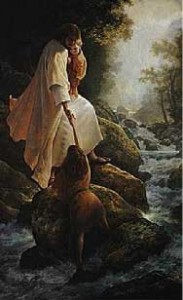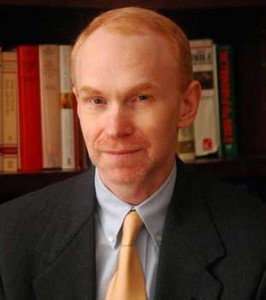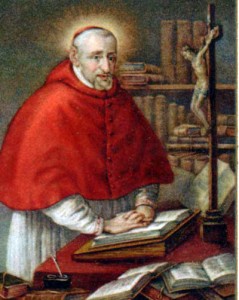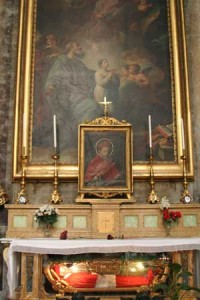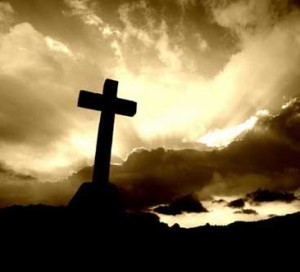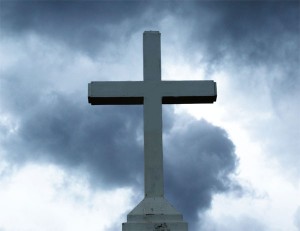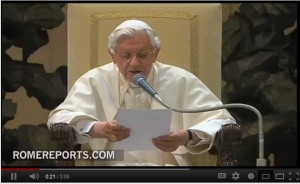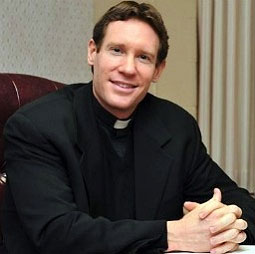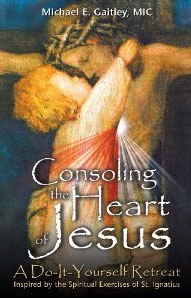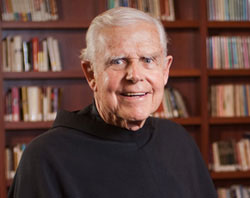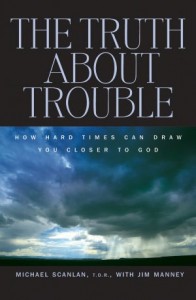Dear brothers and sisters,
Last Wednesday I spoke about prayer in the first part of Revelation. Today we move on to the second part of the book; and whereas in the first part, prayer is oriented toward the Church’s inner life, in the second, attention is given to the entire world; the Church, in fact, journeys through history; she is part of it, in accordance with God’s plan.
The assembly that listened to John’s message presented by the reader rediscovered its duty to cooperate in the expansion of the Kingdom of God, as “priests of God and of Christ” (Revelation 20:6; cf. 1:5; 5:10) and it opens out to the world of men. And here, in the dialectical relationship that exists between them, two ways of living emerge: the first we may define as the “system of Christ,” to which the assembly is happy to belong; and the second, the “worldly systems opposed to the kingdom and the covenant and activated through the influence of the Evil One,” who by deceiving men wills to establish a world opposed to the one willed by Christ and by God (cf. Pontifical Biblical Commission, The Bible and Morality, Biblical Roots of Christian Conduct, 70).
The assembly must therefore know how to interpret in depth the history it is living, by learning to discern events with faith in order to cooperate by its action in the growth of the Kingdom of God. And this work of interpretation and discernment, as well as action, is linked to prayer.
First, after the insistent appeal of Christ, who in the first part of Revelation said seven times: “He who has an ear, let him hear what the Spirit says to the Church” (cf. Revelation 2:7,11,17,29; 3:6,13,22), the assembly is invited to ascend to Heaven, to look upon reality through God’s eyes; and here we discover three symbols, reference points from which we may begin to interpret history: the throne of God, the Lamb and the book (cf. Revelation4:1 – 5:14).
The first symbol is the throne, upon which there is seated a person John does not describe, for he surpasses every human representation. He is only able to note the sense of beauty and joy he experiences in His presence. This mysterious figure is God, God Almighty who did not remain enclosed within His heaven but who drew close to man, entering into a covenant with him; God who makes his voice — symbolized by thunder and lightning — heard in history, in a mysterious but real way. There are various elements that appear around the throne of God, such as the twenty-four elders and the four living creatures that unceasingly render praise to the one Lord of history.
The first symbol, then, is the throne. The second symbol is the book, which contains the plan of God for events and for men. It is hermetically sealed with seven seals, and no one is able to read it. Faced with man’s inability to scrutinize the plan of God, John experiences a deep sadness, which causes him to weep. But there is a remedy for man’s dismay before the mystery of history: there is one who is able to open the book and shed light on it.
And here the third symbol appears: Christ, the Lamb immolated in the sacrifice of the Cross, but who stands as a sign of his Resurrection. And it is the Lamb, Christ who died and rose, who gradually opens the seals and unveils the plan of God, the deep meaning of history.
What do these symbols tell us? They remind us of the path to knowing how to interpret the facts of history and of our own lives. By raising our gaze to God’s heaven in a constant relationship with Christ, by opening our hearts and our minds to him in personal and communal prayer, we learn to see things in a new way and to grasp their truest meaning. Prayer is like an open window that allows us to keep our gaze turned toward God, not only for the purpose of reminding us of the goal toward which we are directed, but also to allow the will of God to illumine our earthly journey and to help us to live it with intensity and commitment.
How does the Lord guide the Christian community to a deeper reading of history? First and foremost, by inviting it to consider with realism the present moment we are living. Therefore, the Lamb opens the four first seals of the book, and the Church sees the world in which it is inserted, a world in which various negative elements exist. There the evils that man commits, such as violence, which comes from the desire to possess, to prevail against one another to the point of killing one another (second seal); or injustice, as men fail to respect the laws that are given them (third seal). To these are added the evils that man must undergo, such as death, hunger and sickness (fourth seal). Faced with these oftentimes dramatic realities, the ecclesial community is invited to never lose hope, to believe firmly that the apparent omnipotence of the Evil One collides with the true omnipotence, which is God’s.
And the first seal the Lamb opens contains precisely this message. John narrates: “And I saw, and behold, a white horse, and its rider had a bow; and a crown was given to him, and he went out conquering and to conquer” (Revelation 6:2). The power of God has entered into the history of man, [a power] which is not only capable of offsetting evil, but even of conquering it. The color white recalls the Resurrection: God drew so near to us that he descended into the darkness of death in order to illumine it with the splendor of his divine life: he took the world’s evil upon himself in order to purify it with the fire of his love.
How do we grow in this Christian understanding of reality? Revelation tells us that prayer nourishes this vision of light and profound hope in each one of us and in our communities: it invites us to not allow ourselves to be overcome by evil, but to overcome evil with good, to look to the Crucified and Risen Christ, who associates us in his victory. The Church lives in history, she is not closed in on herself; but rather, she courageously faces her journey amid difficulties and suffering, by forcefully affirming that ultimately, evil does not conquer the good, darkness does not dim the splendor of God.
This is an important point for us; as Christians we can never be pessimists; we know well that along life’s journey we often encounter violence, falsehood, hate and persecution, but this does not discourage us. Above all, prayer teaches us to see the signs of God, of his presence and action; indeed, to be lights of goodness that spread hope and point out that the victory is God’s.
Read more
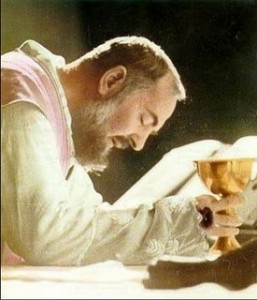 Padre Pio and the Theology of the Body. There’s a fascinating connection that can be made. He begins by offering a detailed sharing of his first encounters with St. Pio and then discusses how his stigmata and gifts relate to our understanding of our relationship with Christ.
Padre Pio and the Theology of the Body. There’s a fascinating connection that can be made. He begins by offering a detailed sharing of his first encounters with St. Pio and then discusses how his stigmata and gifts relate to our understanding of our relationship with Christ.


